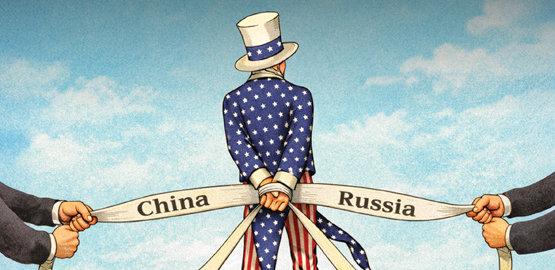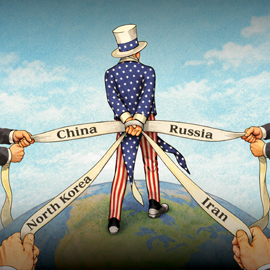News
The Need for Maritime Thinking and Sea Power
Dealing with problems associated with operating and building a fleet can be so self-absorbing that one could miss how changes in the strategic environment are increasing the need for maritime thinking and sea power in general. Unfortunately, Western navies are not well disposed to understand and relate the broader implications of those changes to naval purpose – which of course must be defined before embarking on efforts to redesign and recapitalize the fleet. In terms of time and talent, the focus is on finding high-tech solutions to operational-level problems. In these naval institutions, that which is learned and inculcated is limited to that which is useful in the context of naval operations. While strategic and economic history is not thought to be of much use, it is precisely the kind of knowledge needed to understand such implications and think in maritime terms
What Should Trump Do After the Islamic State Is Defeated?
Donald Trump’s favorite crutch to lean on these days is the idea that he “inherited a mess.” But with respect to the ongoing U.S.-led war against the Islamic State, Trump actually inherited a campaign that is approaching military success.
Contain, Degrade, and Defeat
The decade and a half the United States has spent fighting the “long war” in the Middle East has yielded many tactical successes but left a lasting victory elusive. The inconclusive nature of these struggles has sapped support for the U.S. policy of shouldering the burden of providing security and stability in the region. Although many believed U.S. involvement in the region resulted in more violence, disorder, and radicalization of local Arab populations, the current situation in the Middle East illustrates that inaction has been highly destabilizing. The United States must contend with two intertwined challenges in the region: Iranian aspirations for mastery in the Middle East and the Muslim world and often related violent jihadist terrorism. Both threaten the security of the broader Middle East and the U.S. homeland.
US Must Counter Putin, Push NATO to Rearm
The United States — preoccupied with the wars of the Middle East and a pivot to Asia — has largely left the global playing field to Russian President Putin and must now lead NATO by forging a new consensus on the Russian threat and investing in new weapons. The correlation of forces in the European theater has arguably not been this favorable for Russia since the end of the Cold War. The ability of U.S. and NATO forces to deter Russian aggression is declining and is, arguably, dangerously close to the threshold of acceptable risk in the Baltic States.
The Crisis of American Military Primacy and the Search for Strategic Solvency
ABSTRACT: The authors discuss the erosion of US military primacy and the corresponding dangers for American grand strategy and international security. They analyze three options for restoring strategic solvency and recommend a signi cant expansion of US defense resources to bring capabilities back into alignment with US global commitments.
The New Enemy Below
Undersea threats to the homeland have concerned U.S. leaders since long-range submarines joined enemy navies about a century ago.

























